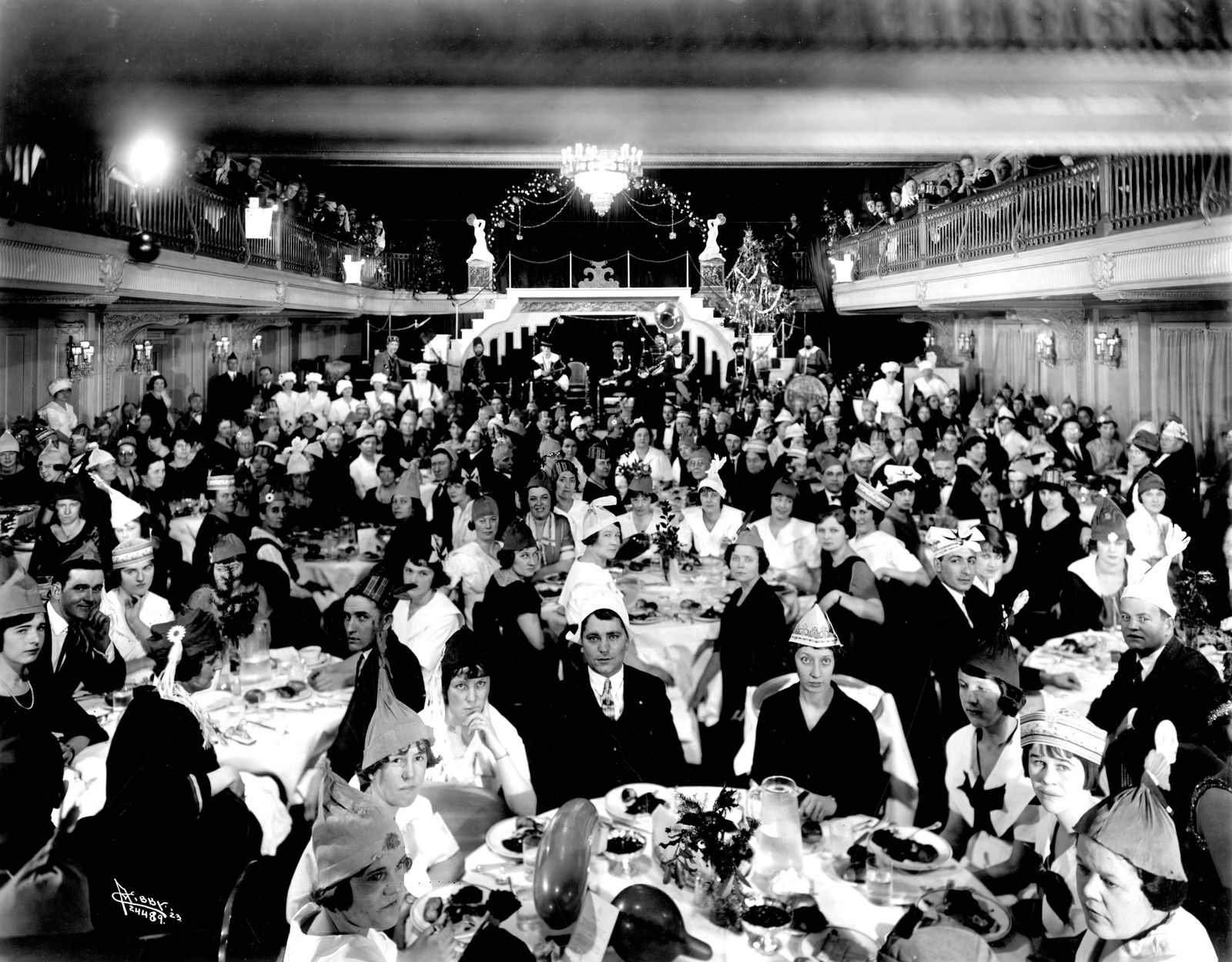
Davenport Hotel: New Year's Eve
New Year’s Eve in Spokane was a little more festive after the Davenport Hotel opened in September 1914. It was the culmination of many years of planning by restaurateur Louis Davenport. Advertisements for the new hotel offered a full holiday dinner for $2 a plate on New Year’s Eve, and there would be dancing to the Davenport orchestra with vocalist Gladys Vogel. The Pantages Theater and others offered vaudeville performances, and ballrooms offered dancing till midnight.
Section:Then & Now
Image One
Libby Collection
| Eastern Washington Historical Society
Image Two
Jesse Tinsley
| The Spokesman-Review
New Year’s Eve in Spokane was a little more festive after the Davenport Hotel opened in September 1914. It was the culmination of many years of planning by restaurateur Louis Davenport.
Advertisements for the new hotel offered a full holiday dinner for $2 a plate on New Year’s Eve, and there would be dancing to the Davenport orchestra with vocalist Gladys Vogel. The Pantages Theater and others offered vaudeville performances, and ballrooms offered dancing till midnight.
The newspapers on that Dec. 31 were filled with dispatches about the war in Europe and the devastation in Dunkirk caused by German warplanes and their bombs. It would be a few years before America officially entered the war in 1917.
Also on the horizon was Prohibition. The national movement against drinking was a reaction, both religious and secular, to the ills of society blamed on alcohol. The constitutional ban on liquor wouldn’t take effect until 1920, but the Washington Legislature instituted its own prohibition in 1915 to take effect New Year’s Day 1916.
The state law didn’t yet ban private consumption, only manufacture, distribution and sale. Jimmie Durkin, Spokane’s notable saloon owner and liquor distributor, spent the last months of 1915 liquidating his holdings of whiskey, beer and wine. Many clubs liquidated and shut down, not even caring to hold a New Year’s Eve party.
For that reason, the Davenport was packed with merrymakers on New Year’s Eve 1915 saying farewell to booze in Spokane. Louis Davenport, at least publicly, said he would abide by the new law. The Spokane Club management liquidated its stores with a wine auction that night. Spokane never fully embraced state or national prohibition. Illegal liquor, produced by bootleggers, flowed in many venues, including the Spokane Club, despite a zealous city police squad dedicated to enforcement.
For religious folks, who likely supported prohibition and didn’t drink, churches held “watch night” services, an alternative to drunken revelry. Catholic and Anglican churches usually held a midnight Mass. Methodists sang hymns and prayed. In predominantly black churches, even today, watch night recalls the 1862 evening when slaves across the South stayed up until midnight to celebrate the Emancipation Proclamation becoming law, even though many soldiers would still die in battle during the Civil War.

